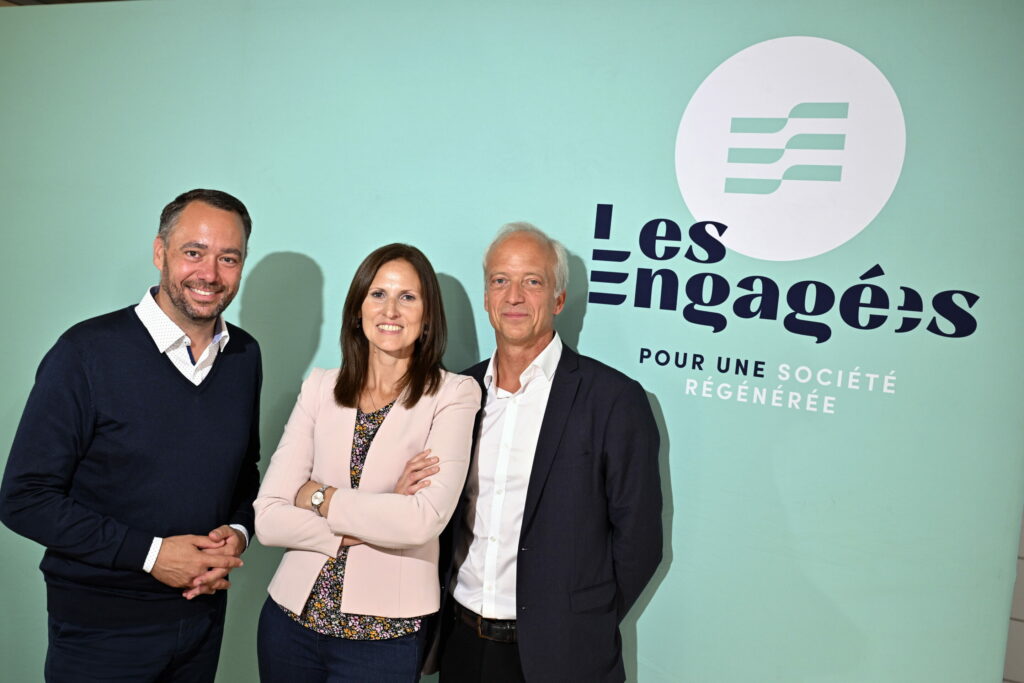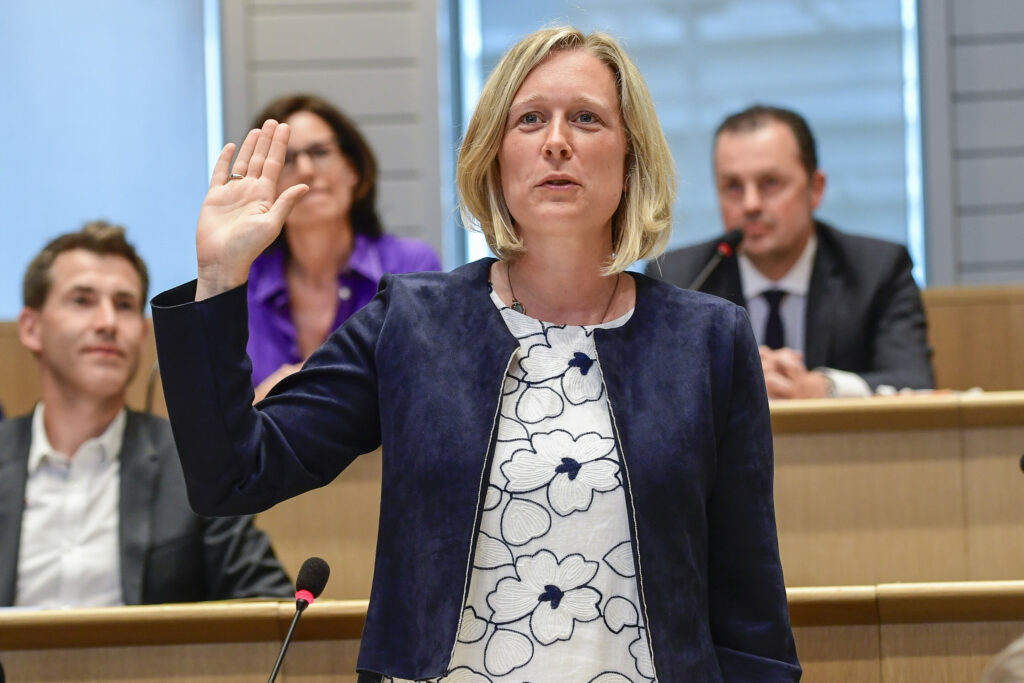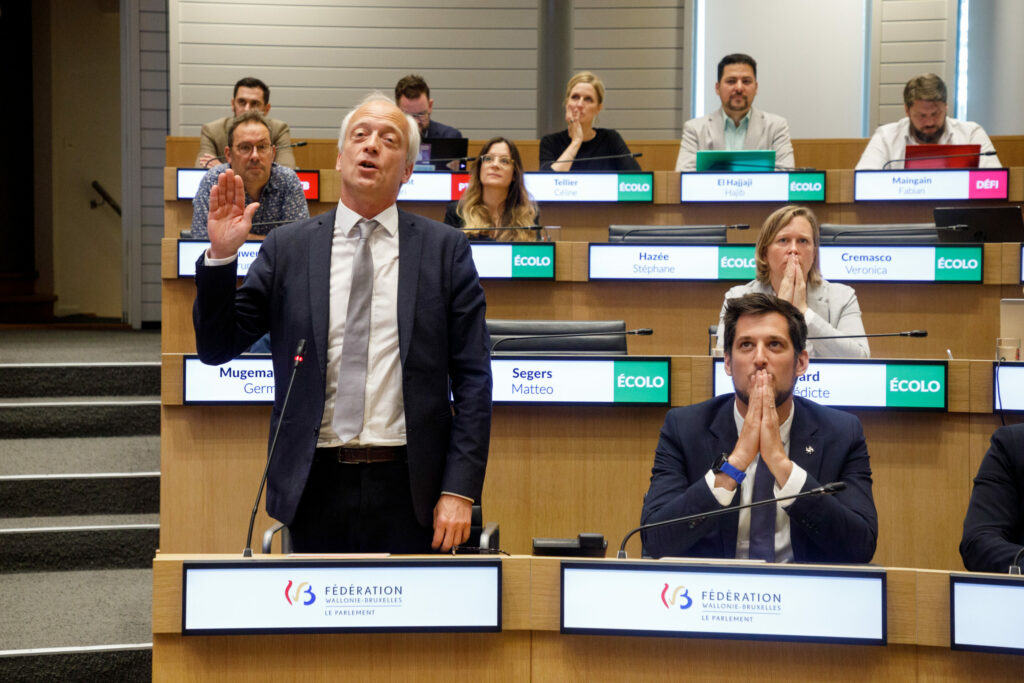In the wake of the June elections, the centre-right parties MR and Les Engagés quickly entered into negotiations to agree on government officials for Wallonia and the French Community. But the appointment of a male minister for Women’s Rights has drawn sharp criticism from opposition party Ecolo and activist groups.
Epidemiologist Yves Coppieters (Les Engagés) became known during the Covid-19 pandemic when he served as an independent expert on the special committee of the Federal Chamber. Also a doctor and professor at the ULB School of Public Health, Coppieters is now a Walloon minister – or "super minister" as several media outlets have dubbed him.
His heavy portfolio has nine fields of responsibility: Health, Environment, Social Action, Social Economy, Disability, Poverty, Equalities, Families and Women’s Rights.
In statements made following his appointment, Coppieters expressed pride about the position as minister for Women’s Rights, though it was not a role he was expecting. "I was primarily expecting to handle health, but I also received the environment portfolio, which I find to be quite coherent as health and environmental issues are more than ever intertwined," he told The Brussels Times.
He added that he wants to prioritise environmental health following the recent PFAS revelations. But even before his double swearing-in, Coppieters sparked controversy on social media. This centred around his assignment as Minister for Women’s Rights, despite his being a man.
Unconstitutional mishap
Coppieters' appointment follows a mishap by the two party leaders Georges-Louis Bouchez (MR) and Maxime Prévot (Les Engagés). During their press conference presenting the first draft of the French Community government, there were four female ministers. No men.
Not only does this contravene the legal requirement for governments to have one-third of each gender, it also violates the constitutional mandated to have mixed governments (in place since 2002).
Minister-President Elisabeth Degryse (Les Engagés), already burdened with an overloaded ministerial portfolio, was supposed to be appointed Minister for Women's Rights. But in order to comply with the constitutional quota, Adrien Dolimont (MR) and Yves Coppieters have been appointed as ministers. Women’s Rights were then assigned to Coppieters to lighten Degryse's load.

Les Engages' leader Maxime Prevot (L) with new recruits Lyseline Louvigny and Yves Coppieters, Monday 18 September 2023. Credit: Belga
Can a male Minister defend Women’s rights?
Shortly after the announcement, outgoing State Secretary for Gender Equality, Equal Opportunities and Diversity Sarah Schlitz (Ecolo) reacted on Instagram. "Women's rights in the hands of a 67-year-old man who has hardly ever spoken on the matter? Is he the one who will crack down on inclusive writing?" she questioned. Her argument comes as the Walloon and the French Community governments have stated their intention to condemn inclusive writing in official texts.
Soon after, the activist group Pourquoi Devenir Féministe [literally, why becoming feminist] posted on their socials about Coppieters: "Meanwhile in reactionary Belgium, an old guy is appointed Minister for Women's Rights. Happy New Year 1967!"
When questioned about his legitimacy amid the criticism, Minister Coppieters was resolute: "Can we move beyond the stereotype that a male minister cannot address women's rights and gender inequalities? Some argue that having a man in this role will ensure our actions are scrutinised more thoroughly for their long-term impact."
"Men can be feminists, and I consider myself one. I have advisors, particularly women, who support me, and I am confident that we can make significant progress together."

Bénédicte Linard (Ecolo) during the oath ceremony at the Federation Wallonia Brussels parliament in Brussels, 18 June 2019. Credit: Belga
Coppieters collaborated closely with his second on the federal list Lyseline Louvigny during his political campaign. Together, they prioritised gender equality issues such as improving mental health care for women victims of sexual violence, increasing access to contraception, and promoting entrepreneurship among women.
Without casting any doubt on Coppieters’ competences, former Minister for Women’s Rights Bénédicte Linard (Ecolo) carefully asked: "How can a man experience and understand the daily realities faced by women?"
Citing the gender pay gap, job discrimination, sexual harassment, domestic violence, and work-life balance, Linard told The Brussels Times that appointing a male minister was a mistake. She added that it might send the wrong message. "Having a male Women’s Rights Minister to validate women’s experiences may seem politically paternalistic."
Bouchez stated that the two in extremis elected ministers Dolimont and Coppieters would take on "small community responsibilities", including Women’s Rights – a turn of phrase that made Ecolo cringe. The opposition party stresses that grassroots feminist associations are asking for an integrated women's rights policy to be carried out.
Coppieters acknowledges that he will not start completely from scratch: during the past term, Linard and her peers at the regional and federal levels worked on a Women's Rights Plan backed by numerous associations. This road map includes 90 recommendations. "I'm ready to carry on this work", Coppieters affirmed.

